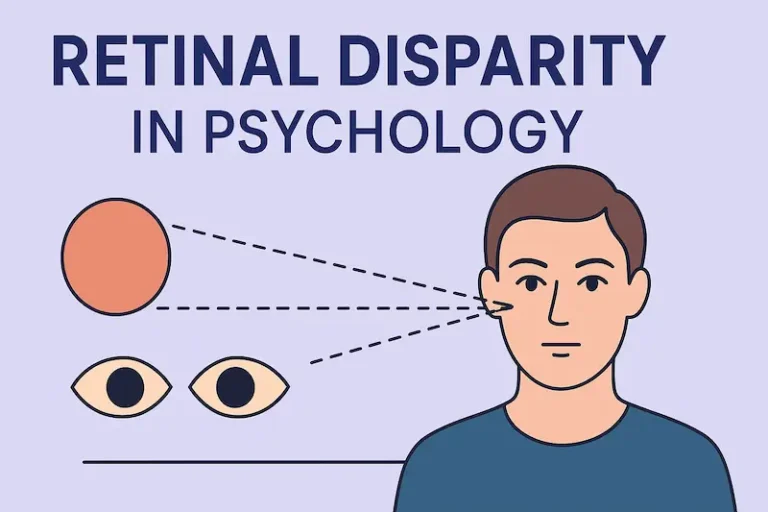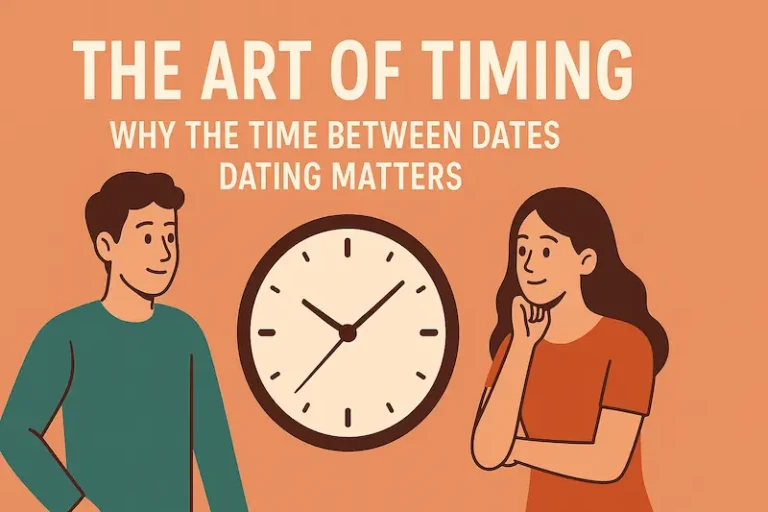Psychological Projection: How to Deal With Someone Who’s Projecting Negativity Onto You

Table of Contents
We’ve all been there: A coworker snaps at you during a team meeting after their own project flops. A friend comments on your Instagram vacation photos, saying, “Those must be so filtered—real life can’t look that good.” Or a parent dismisses your promotion by adding, “Your cousin got a bigger raise last year, didn’t she?”
These moments leave you confused, hurt, or even angry. You ask yourself, “Why are they targeting me?” More often than not, the answer has nothing to do with you—it’s about psychological projection. This common mental mechanism makes people unknowingly shift their own insecurities, anger, or fears onto others. Let’s break down what it is, why it happens, and how to protect yourself from its harm.
What Is Psychological Projection?
The American Psychological Association (APA) defines psychological projection as a defense mechanism where a person “attributes to another person feelings, thoughts, or motivations that are actually one’s own.” In simpler terms: We see in others what we struggle to face in ourselves.
This isn’t a conscious choice—it happens automatically, often when someone is overwhelmed by emotions they can’t process. For example, if a person feels guilty about cutting corners at work, they might accuse a teammate of “slacking off” instead of confronting their own behavior.
Common Types of Psychological Projection
Projection manifests in three key ways, each with relatable scenarios :
- Emotional Projection: We assume others feel the same way we do. A person who’s deeply anxious about their job might ask you, “Aren’t you stressed about getting laid off?”—even if you feel secure in your role. On the flip side, someone who’s happy with their relationship might say, “You and your partner seem so in love!” because that’s their own reality.
- Wish Projection: We project our unmet desires onto others. A recent college grad desperate for a job might insist, “Everyone I know is applying to 50 places a week—you should too!” They’re not giving advice—they’re projecting their own fear of failure.
- Trait Projection: We assign our flaws to others. A person who struggles with dishonesty might say, “I don’t trust them—they seem hiding something.” This is their way of avoiding their own relationship with truth.
Why Do People Project and Put You Down?
Projection isn’t about being “mean”—it’s a survival tactic for the mind. When people can’t handle difficult emotions or unwanted parts of themselves, they “dump” those feelings onto others to feel lighter. This usually happens for two key reasons:
1. To Escape Uncomfortable Emotions
Imagine this: A manager at your company misses a critical client deadline. Instead of apologizing, they call you into their office and yell, “Your report was late last week—this is why we’re behind!”
What’s really happening here? The manager feels shame (for failing the client) and anxiety (about losing their job). These emotions are too painful to sit with, so they project the blame onto you. By framing you as the problem, they temporarily avoid their own guilt.
This is why “the guilty party cries first” is such a common phrase. A 2022 study published in the Journal of Personality and Social Psychology found that 68% of people use projection to avoid shame—especially in high-pressure environments like work or relationships.
2. To Reject Traits They Hate in Themselves
Here’s a hard truth: People attack what they envy or fear in themselves. If a friend mocks your “expensive” new laptop, it’s not about the laptop—it’s about their own insecurity about not being able to afford one. If a family member calls you “too ambitious,” they’re likely hiding their own regret about playing it safe in life.
Carl Jung, the Swiss psychologist who popularized projection theory, put it best: “Everything that irritates us about others can lead us to an understanding of ourselves.” When someone puts you down, ask: What part of this is about them, not me?
How to Deal With Negative Psychological Projection (4 Strategies)
The worst mistake you can make when someone projects onto you is to fight back. If you snap, argue, or defend yourself, you’ll fall into their “projection trap”—you’ll act exactly how they expect, and they’ll keep targeting you. Instead, use these four calm, effective strategies:
1. Don’t Engage—Avoid Emotional Reactions
Projection thrives on attention. When someone calls you “lazy” or mocks your work, they want you to get angry—this confirms their story that you’re the problem. The best response? Starve it of energy.
For example:
- If a coworker says, “Your presentation was so disorganized—no wonder the client hesitated,” don’t say, “That’s not true! I worked on it for weeks!” Instead, say, “I appreciate your feedback. I’ll keep that in mind.” Then walk away.
- If a friend jokes, “You’re always traveling—must be nice to waste money,” smile and say, “I love exploring new places!” Don’t explain your budget or defend your choices.
By staying calm, you break the cycle. The other person will realize their words aren’t getting a rise out of you—and they’ll likely stop.
2. Practice Self-Awareness to Spot Projection Early
Projection often triggers a “gut feeling” of confusion: Why is this person upset with me? I didn’t do anything wrong. That feeling is your first clue to pause.
Try this 3-step check-in when you feel targeted:
- Ask: Did I do something to hurt them? If the answer is no (e.g., you didn’t miss a deadline, lie, or ignore them), it’s probably projection.
- Notice: What are they accusing me of? If they call you “selfish,” ask: Could they be feeling selfish themselves? If they say you’re “unreliable,” think: Have they canceled plans on you lately?
- Breathe: Take 3 deep breaths to calm your initial anger. This stops you from reacting before you think.
Self-awareness is your shield. A 2023 survey by the American Mental Health Foundation found that people who practice daily self-check-ins are 40% less likely to be affected by others’ negativity.
3. Set Boundaries—or Distance Yourself
Epictetus, the ancient philosopher whose teachings are still popular in American self-help circles, said: “We cannot control the actions of others, but we can control our own response to them.” Sometimes, the kindest thing you can do for yourself is to limit contact with people who keep projecting.
Here’s how to do it:
- First, set a clear boundary: If a family member keeps dismissing your achievements, say, “I know you care about me, but when you compare me to others, it hurts. Can we talk about my promotion without bringing up my cousin?”
- If boundaries don’t work, step back: If a coworker keeps mocking your ideas, avoid one-on-one conversations. If a friend’s comments make you feel bad, spend less time with them. You don’t owe anyone your mental peace.
4. Strengthen Your Self-Knowledge—Don’t Let Others Define You
Benjamin Franklin once said, “Three things are extremely hard: steel, diamonds, and knowing oneself.” When someone projects onto you, their words are a reflection of their insecurities—not your worth. The stronger your self-knowledge, the less their words will sting.
Try these daily habits to build self-confidence:
- Keep a “win journal”: Write down one thing you did well each day (e.g., “I nailed that client call” or “I helped my neighbor move”). When someone says you’re “not good enough,” revisit this journal to remind yourself of the truth.
- Ask trusted people for feedback: If a coworker says your communication is “bad,” ask a mentor or friend, “Do you think I need to work on how I share ideas?” External validation from people who know you well will counteract unfair criticism.
- Define your values: What matters to you? Is it kindness, hard work, or creativity? When someone attacks you, ask: Does this align with who I know I am? If not, let it go.
Final Thoughts
You’ll meet people who project their negativity onto you—at work, in your family, or even in your friend group. But remember: Their bullying or put-downs aren’t about you. They’re about someone who can’t handle their own emotions.
The best response isn’t to fight back—it’s to:
- Stay calm and don’t engage with their negativity.
- Use self-awareness to spot projection early.
- Set boundaries, and step back if needed.
- Strengthen your self-knowledge so their words don’t define you.
Your time and energy are precious. Don’t waste them on people who want to drag you down. Focus on becoming the best version of yourself—and let the rest go.
CTA
To recap: Psychological projection is when people shift their own insecurities onto others—and the key to dealing with it is to protect your mental health, not fight back. By staying calm, setting boundaries, and knowing your worth, you can avoid falling into their trap.
Have you ever dealt with someone who projected their negativity onto you? How did you handle it? Share your story in the comments below—your experience could help another reader navigate a similar situation. If you found this guide helpful, share it with a friend who needs to hear this message.






